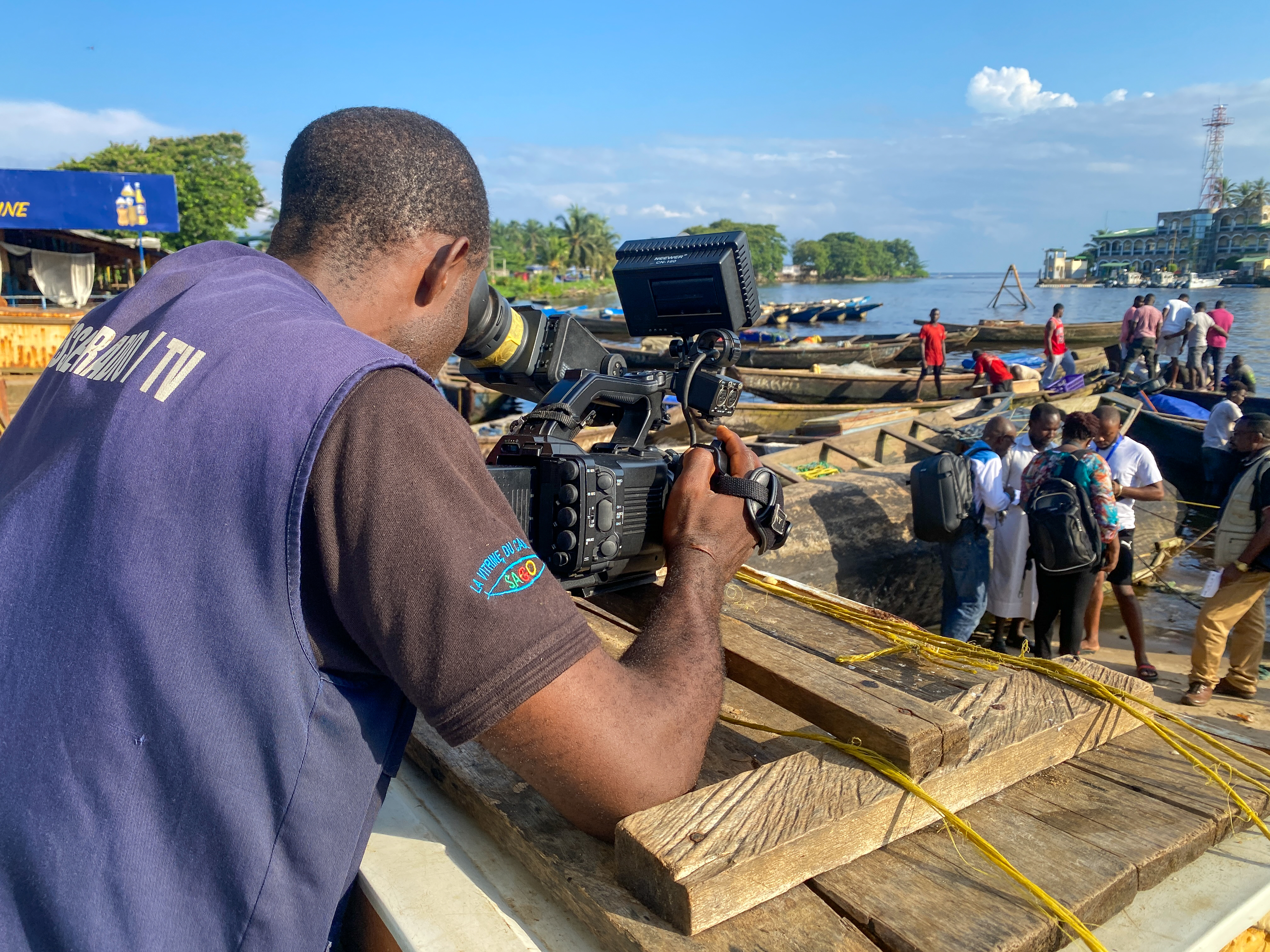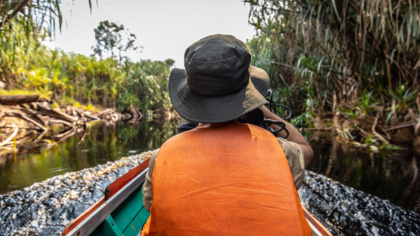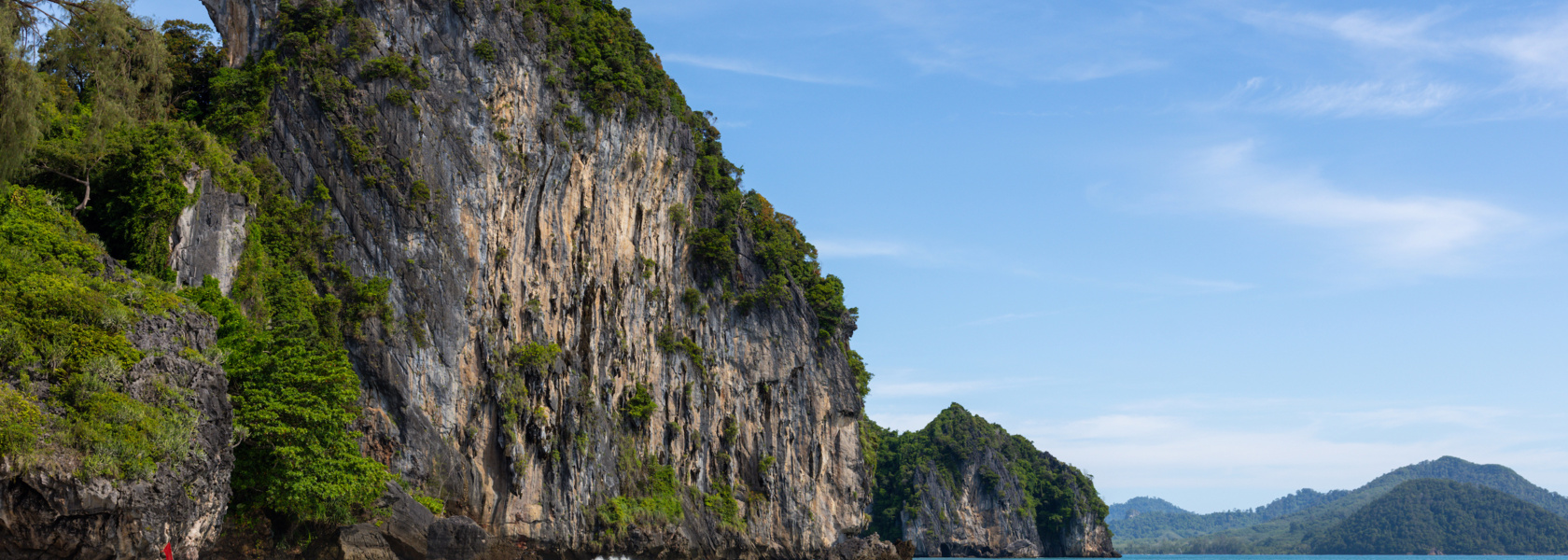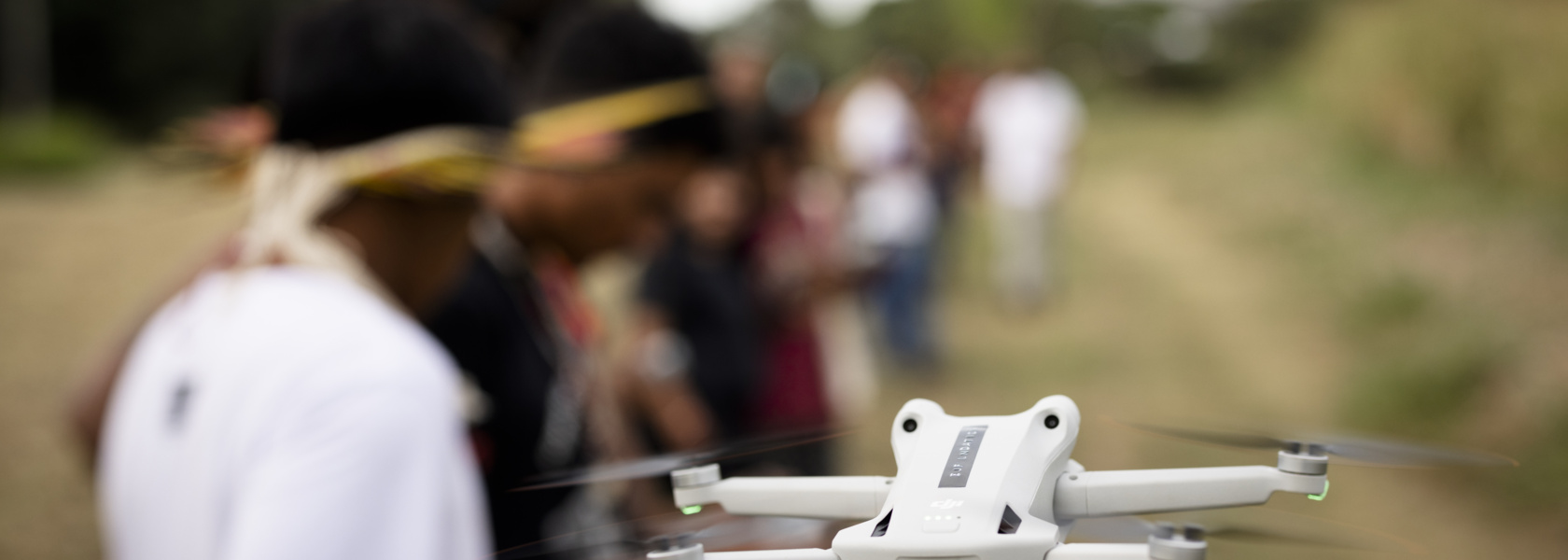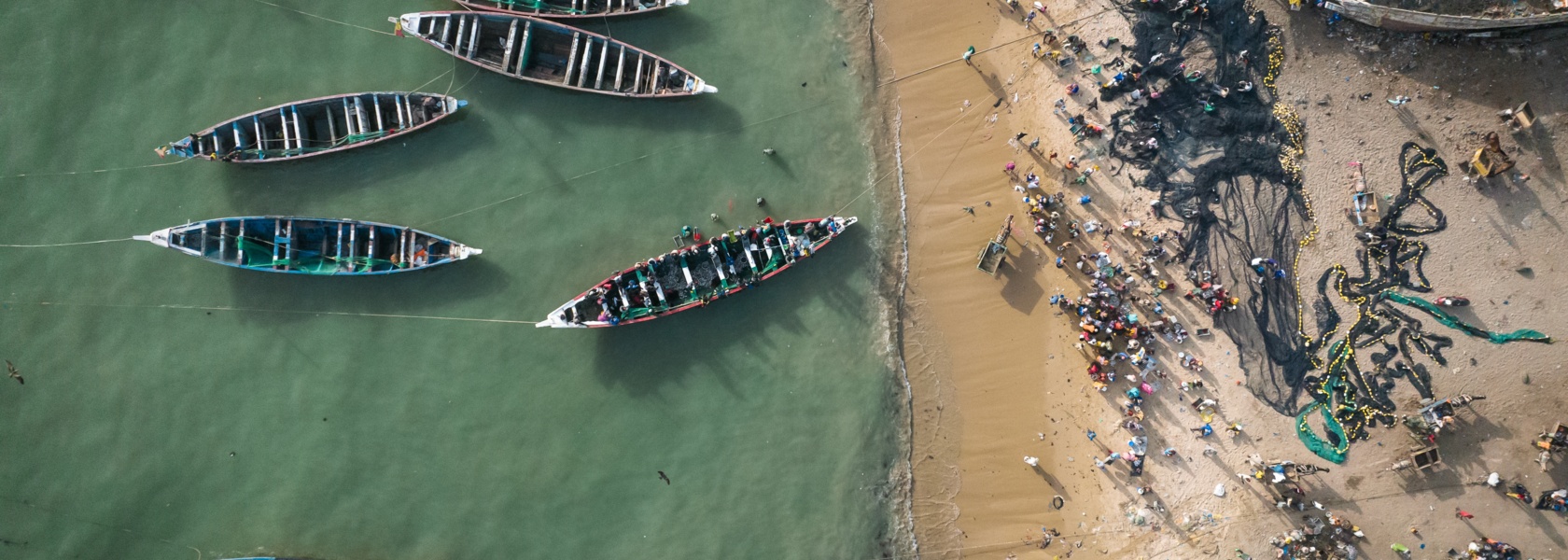As disinformation spreads and climate denial grows, accurate reporting matters more than ever. Journalists and investigators are often the first to document environmental and human rights violations, but they regularly operate with limited resources in hostile contexts. EJF helps journalists to overcome these obstacles and bring their stories to the forefront. The funding, equipment and training on environmental investigation techniques and film-making strengthens their reporting and amplifies their reach and impact.
What we do
We empower journalists and investigators to carry out impactful investigations on environmental and related human rights issues:
- We provide tailored training. Building on the local journalistic experience, background, and interests, we develop targeted workshops to facilitate their research on key issues affecting their environment. These trainings cover topics ranging from ocean conservation, open-source intelligence, personal safety, strategic communications, camera and drone filming.
- We deliver equipment. We provide the equipment journalists need to conduct their research, which includes cameras, drones, tripods, laptops and phones. This technology allows them to develop high-quality and visually impactful reports.
- We offer story grants and mentoring. We fund the fieldwork and research required to develop investigations from promising ideas into published stories. We pair journalists with experienced mentors who provide tailored guidance every step of the way.
- We amplify their stories. We help people pitch their stories to national and international media outlets, to ensure their work gets the visibility it deserves. To bring about policy change, we connect them with relevant decision-makers.
- We make investigative journalism more accessible. We have developed a concise manual on investigative journalism with the Tempo Institute, an organisation dedicated to enhancing journalism across Indonesia, that offers guidance for less experienced investigators (available in English and Bahasa). We are currently developing more in-depth resources, to support investigators to plan field investigations, use films and photos for reporting and advocate for change.
Why do we support journalists?
Environmental journalists face escalating challenges and life-threatening risks. As global geopolitical shifts and digital disinformation fuel false claims about environmental degradation and obscure accountability, the need for independent and accurate environmental reporting is growing stronger. Yet doing this work can be incredibly dangerous. Over 300 environmental journalists or media outlets were attacked between 2019 to 2023 globally, a 42% increase from the preceding five years.
Environmental crimes can take place in extremely remote and difficult to access areas - far out at sea, or deep in inaccessible rainforests - where the lack of scrutiny allows perpetrators to operate with impunity.
More often than not, journalists lack the funding and equipment necessary to pursue in-depth investigations in these regions.
We work to ensure these journalists’ bold and brilliant reporting gets the attention it deserves.
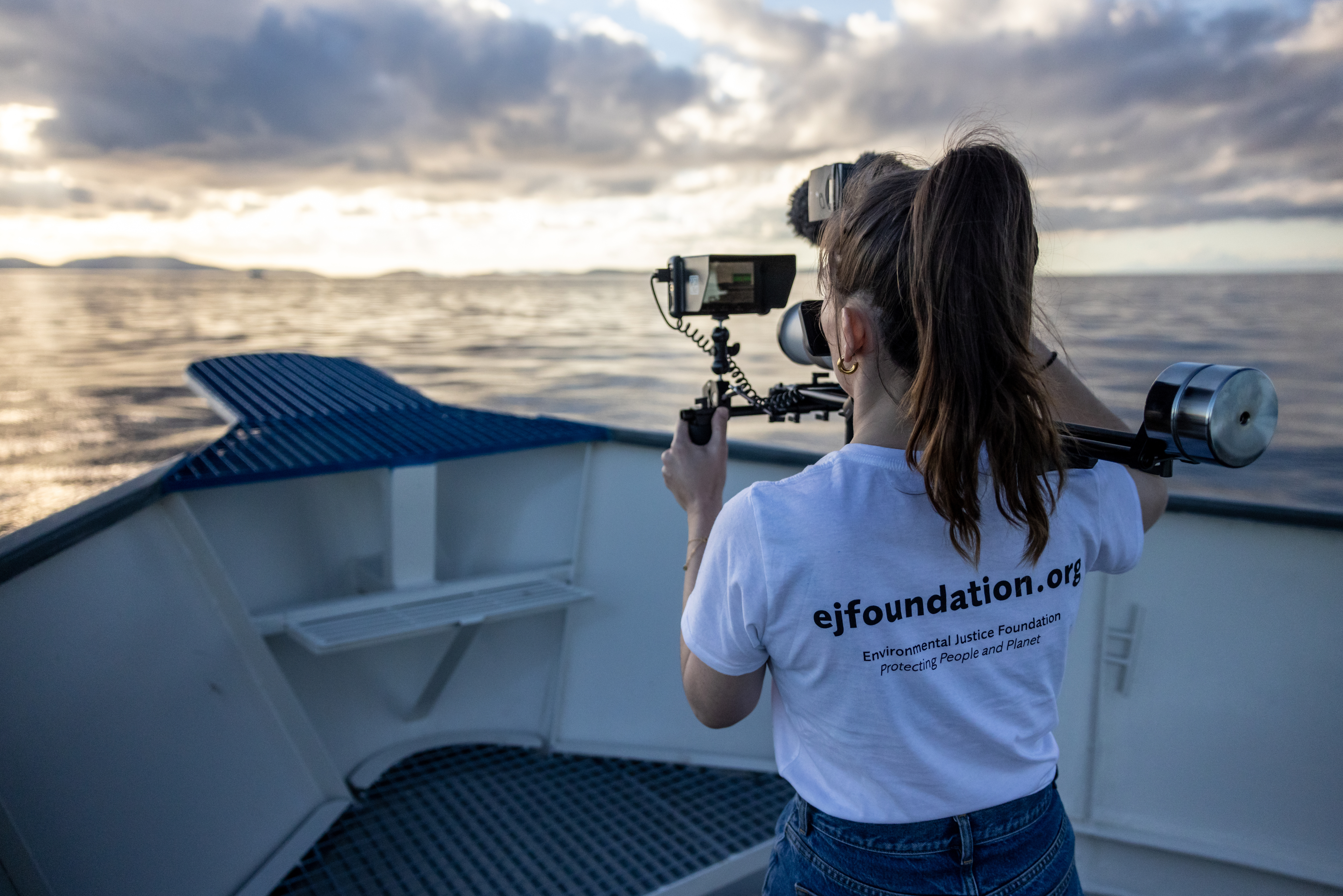
Where we work
Since 2021, EJF has delivered training and support to journalists in 9 countries. We organised workshops across Africa (Cameroon, Somalia, Ghana, Liberia, Senegal) and Southeast Asia (Indonesia, Thailand). We also offered funding and remote training to journalists and media based in Tanzania, Madagascar and Mozambique.
We have delivered workshops to more than 500 journalists. Their work has focused on ocean and marine issues, including illegal, unreported and unregulated fishing, shark and ray trafficking, and human rights abuses in the fishing industry. The investigations conducted by journalists who participated in our workshops highlight the voices of fishers and coastal communities, shed light on the threats they are facing and call for action.
We plan to expand our programme to reach journalists based in other regions, such as South America, recognising the threats they face and their growing need for support.
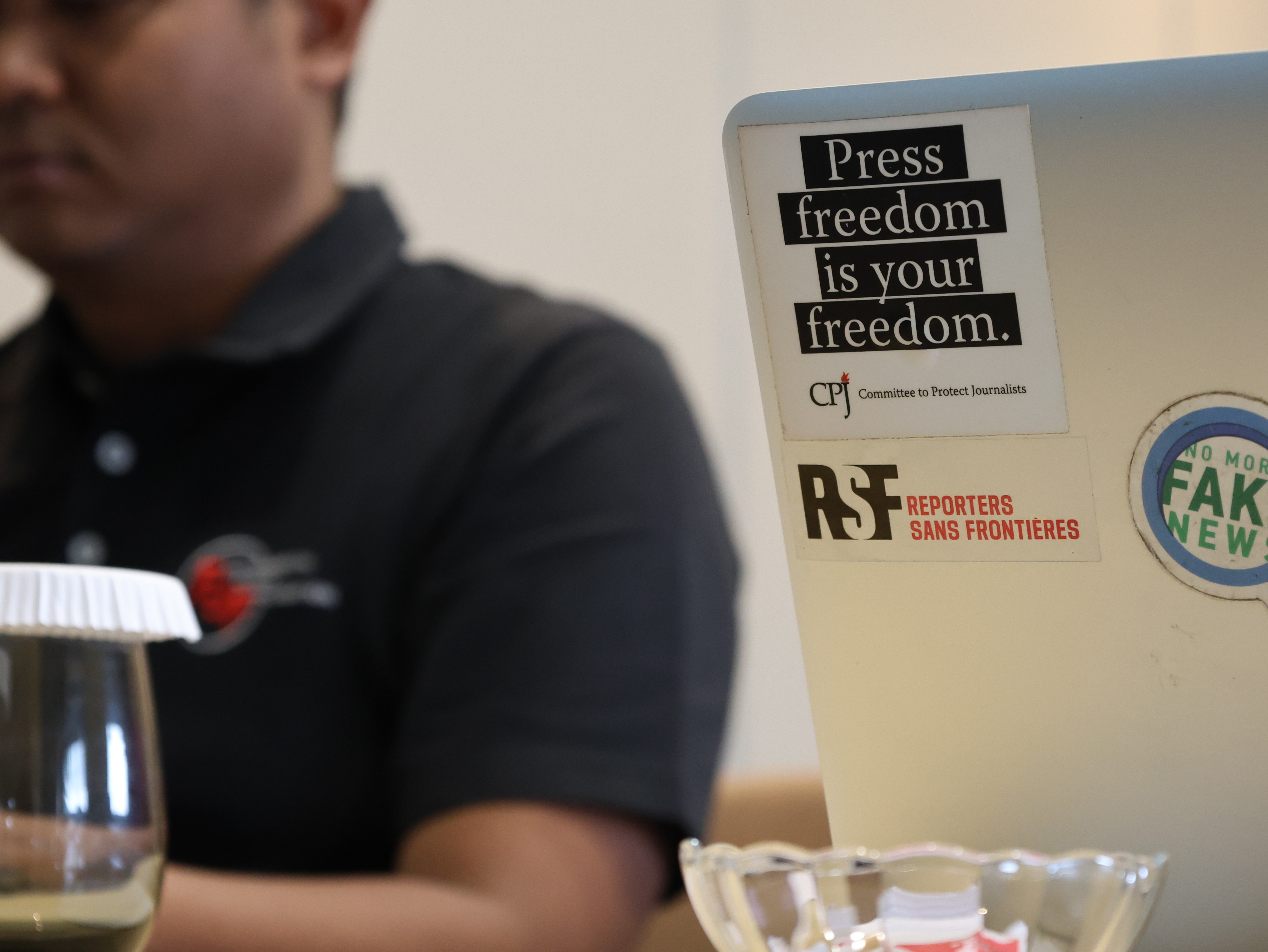
The stories we supported
Our recent story grants and workshops enabled reporters to investigate and compile evidence that holds the people who perpetrate abuses against our natural world accountable for their crimes:
In Indonesia - Butchering shark fins in the middle of the Arafura sea, by Abdus Somad.
In Liberia - The hidden cost of fish smoking for women, by Tina Mehnpain.
In Cameroon - Fishing subsidies: inviting the State to withdraw its nets, by Dialigué Faye.
In Mozambique - Human rights abuses and illegal fishing practices in Mozambican waters by Chinese vessels, by Steven Poole.
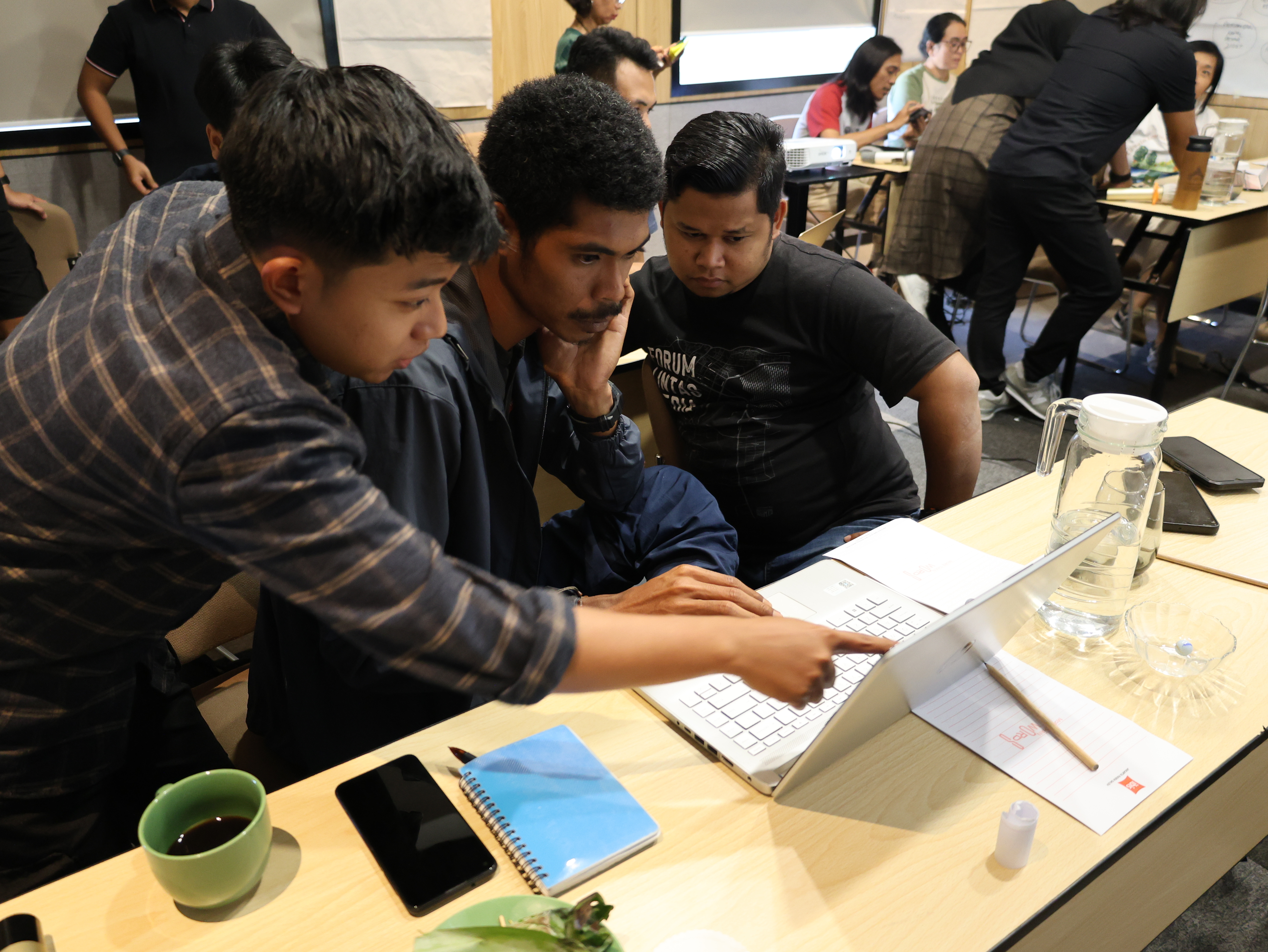
I have a lot of learning opportunities from this training and it has helped me develop my capacity as a journalist who is still new to maritime affairs and the environment. I will share my knowledge with fellow journalists and my editorial room so that they can learn together in making reports on marine-environmental crimes.
Abdus Somad, journalist, Indonesia (2021).
Abdus conducted investigations in the shark and ray trade, leading to engagement from the Ministry of Maritime Affairs and Fisheries.
The Ocean Journalist Fellowship - Indonesia
EJF supports a small cohort of experienced journalists, providing them with advanced training in ocean investigations. Our workshops touch on methodologies to report illegal and unsustainable fishing, monitor industrial fishing vessels and investigate the agencies that supply migrant crews to fishing fleets.
The journalists we support pursue investigations on critical topics, including modern slavery in the fishing industry and destructive fishing.
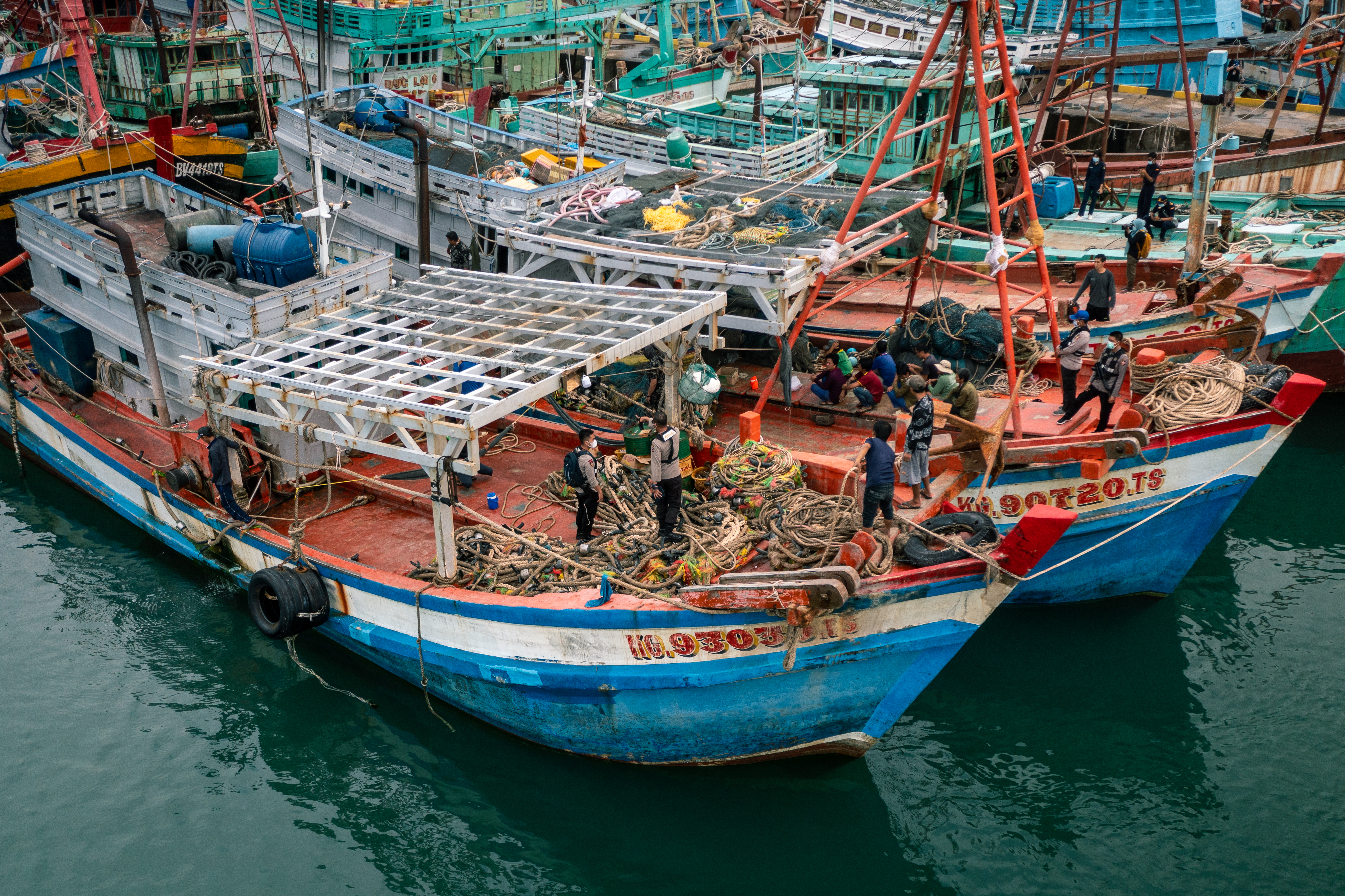
Growing an Environmental Journalism Network in Thailand
We create events that bring together journalists, media practitioners, independent creators and journalism students.
Through knowledge and capacity-sharing workshops, participants refine their skills in storytelling, open source intelligence, and security amongst others.
To deepen their understanding of the threats faced by local communities, we also facilitate field visits bringing unprecedented insights and information.
Over 40 story-grants have been awarded so far, enabling reporters to shed light on the consequences of environmental and human rights crimes.
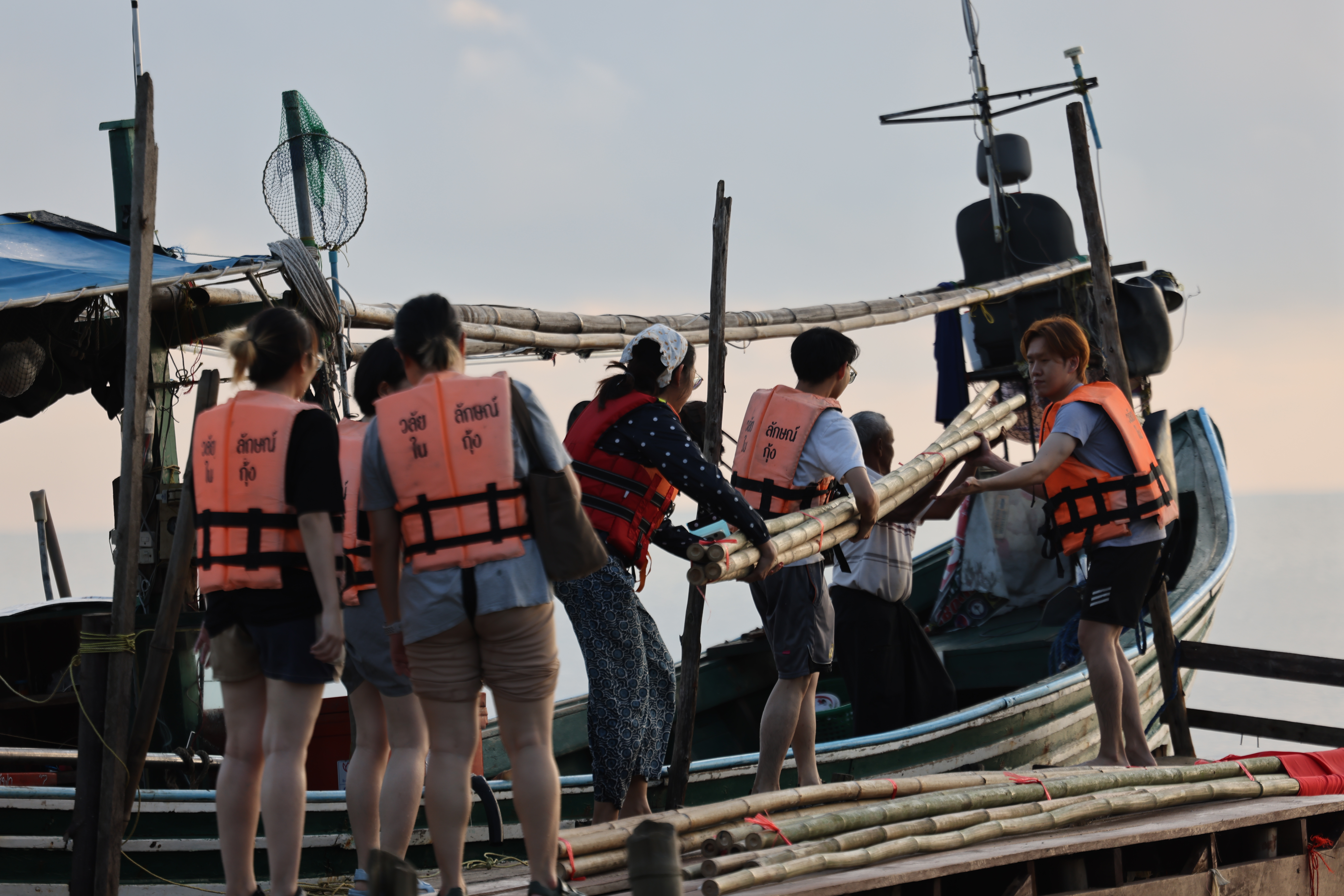
Further information
For further information on our programmes between 2020-2023, download this report.
To be added to our press list, visit this link.

SIGN UP FOR OUR EMAILS AND STAY UP TO DATE WITH EJF
